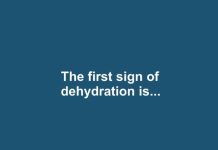I really believe in the power of exercise to change the brain. My studies show that physical activity improves attention and reduces anxiety.
How exercise affects attention and focus.
Even a single exercise session can improve attention and executive performance in a Stroop task. In this task, familiar to all psychology students, you are asked to name the colour in which text is printed for a series of words. The trick is that all the words are different colours (for example, red, green, yellow). When the colour word (red) matches the colour of the text (i.e. it is printed in red), it is easy and we name the colour of the text very quickly. But if the colour word (yellow) is printed in green text, it takes us much longer to say green.
The ability to ignore the word and focus on the colour is called “selective attention” and depends on the prefrontal cortex. Performance on this task improves after a single exercise session, and long-term changes in your exercise regime can also lead to sustained improvements in performance on this task.
How exercise affects mood and anxiety.
Access cutting-edge nutritional information from the world’s top doctors and experts Ask anyone who exercises regularly and they’ll probably tell you that not only have they noticed an improvement in their overall mood and higher energy levels after working out, but they also feel more focused. I know that after a workout (which I now do exclusively in the morning), I am more focused on writing or tackling the most difficult tasks on my to-do list. I always feel better prepared to tackle any project after doing my morning workout.
Exercise improves many aspects of brain function.
Like meditation, regular aerobic exercise has powerful positive effects on anxiety and depression. One study has shown that exercise can be as effective as one of the most popular antidepressants in treating major depressive disorder. Exercise has been shown to reduce the symptoms of anxiety disorders and address the underlying neural functioning. One study reported that three months of increased aerobic exercise in older adults resulted in an increase in white matter volume, the output structure of brain cells that transmit information to downstream cells. Although the precise mechanism to explain the improved prefrontal function and increased white matter volume has not been fully elucidated, increased levels of a range of growth factors in the brain are probably part of the answer.
All you need is 10 minutes of movement.
On a practical level, given that even a single exercise session (especially one of at least 30 minutes designed to get your heart rate up) has been shown to improve attention and executive function – and that anyone, even in street clothes, can get their heart rate up with a good brisk walk – physical activity is one of the quickest, easiest, and most practical ways to alleviate your own anxiety and boost your focus and attention.
One of the most amazing observations I made happened almost as a second thought. I was giving a 30-minute live virtual lecture (via Zoom) to a group of incoming freshmen at New York University and decided to make it memorable. I asked them to exercise with me for the last 10 minutes of the lecture so that they could really “feel” the effects of the exercise on their mood and cognitive function.
At the last minute I thought it would be interesting to measure their anxiety levels by giving them a very quick but standardised anxiety test before and after the exercise and offering to send them their results after the lecture. I found high levels of anxiety in the group before the exercise, but after the exercise, a significant drop of 15 points in the anxiety scores, bringing them back to normal levels. To me, this shows the power of adding just 10 minutes of movement to your life.










